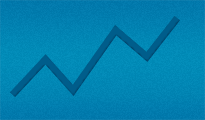Ladies and Gentlemen:
Our impression that, at the moment, the European economy is developing in a scope, at a speed, and at an intensity that reminds many of the “pre-Lehman era” might just stem from alternative facts. Where is the disruptive truth that brings us back to reality? What’s up with Brexit, with the Crimean disputes, with the Syrian war, with the ISIS terror and the immigration chaos? With protectionist nationalism and EU bashing? How does all this square with economic growth and quiet optimism in matters related to “Europe’s future”? Are companies, financial pundits, and their epigones repressing reality? Are they denying the facts?
Probably not, but they may also be seeing developments and facts other than only those that make for simple headlines. What they see in Europe—perhaps more consciously than others—are countries that are making serious efforts to put their financial house in order. They see increasing employment and decreasing youth unemployment in ever more European countries, a growing willingness on the part of both companies and individuals to invest, but also increasingly viable economic structures in the countries of the former Eastern Europe … and perhaps a whole lot more. But something else entirely might be in play, too, something that is more important than everything else in the long run: specifically, the return of confidence in Europe’s future—buoyed by election results that confirm the trend or at least seem to do so and buoyed not least by growing numbers of young people who perceive Europe as their home, not some relatively narrow nation state.
It really seems to be the case these days that, in a departure from the past, the economic sphere is emancipating itself to some extent from the political sphere, in that political problems no longer trigger economic ones by definition and in that the “economy” (i.e., the corporate sphere) creates its own view of reality and then acts accordingly. To return to our starting point: Most certainly, this does not entail creating alternative facts. Instead, it means claiming freedom for oneself, developing an increasingly independent view of reality, and acting accordingly as well. This growing autonomy of the economic sphere relative to the political sphere, if you will, is being driven by another force as well: To wit, the consciousness and the conviction that, in the economic and geopolitical interplay of forces, solely a largely united Europe will be able to assert its interests against the other players in the long run. By its stance, the economic sphere is signaling that political risks and excuses should not be a reason, in and of itself, to shrink from believing in the future of a united Europe. But all of this depends on the right parameters. At the end of the day, Europe will be unable to muster the strength required for creating such a framework if it continues to be a mere agglomeration of nation states. Absent a basic consensus on these parameters and hence Europe’s long-term trajectory—which all participants will then have to turn into a lived reality—the economic sphere will lack that which is indispensable in international competition: the support of a strong political partner. This is not so much about direct political intervention, but rather about the simple fact that one’s counterpart needs to know that there’s more than mere financial competence.
To voestalpine, this development shows that its strategy is on the mark. Europe will remain our Group’s economic and financial base, however uncertain the political parameters may be in the future. Yet there is no real alternative to consistent and continued internationalization if the aim is to achieve the best possible distribution in the long term of the political and economic risks. At the end of the day, in our view the goal must be to distribute the entrepreneurial risk equally among Europe and the rest of the world. We believe that this puts us and the voestalpine Group in good hands.
Linz, May 24, 2017
The Management Board
Wolfgang Eder
Herbert Eibensteiner
Franz Kainersdorfer
Robert Ottel
Franz Rotter
Peter Schwab
This report is a translation of the original report in German, which is solely valid.

Share page